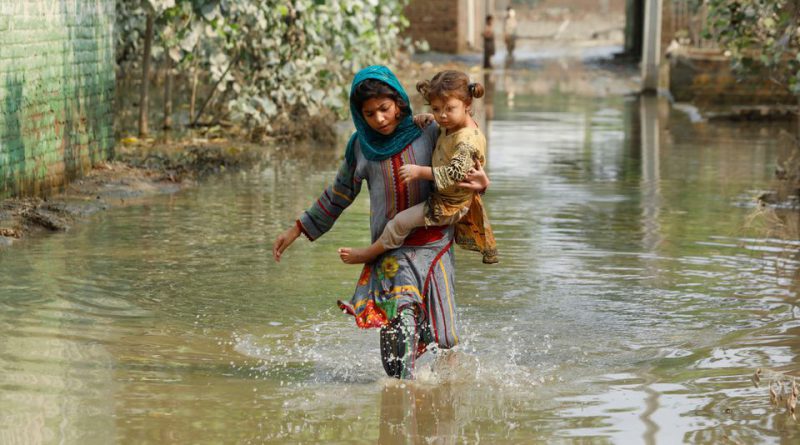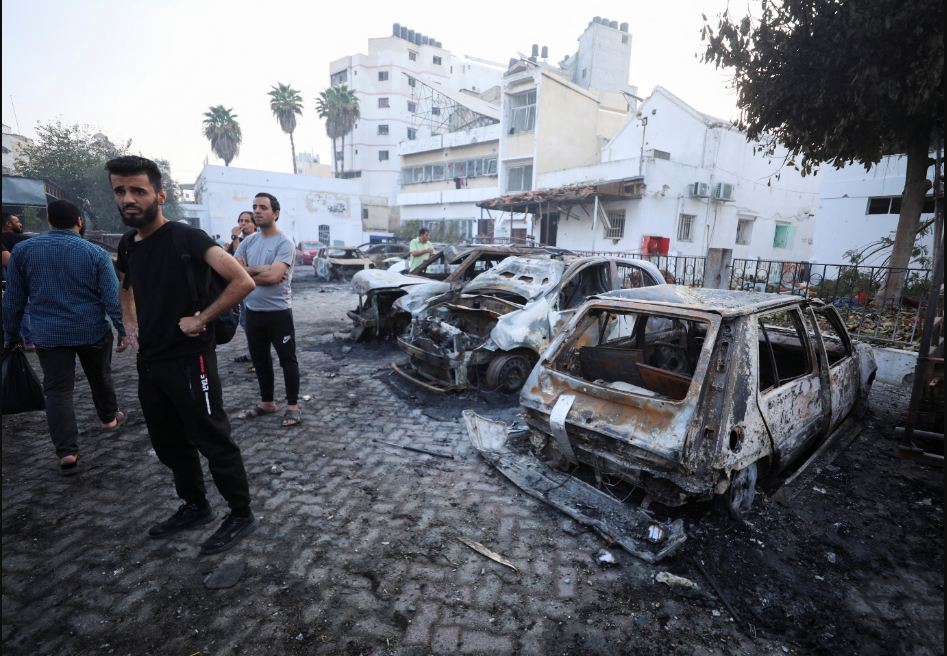Pakistan struggles to avert danger as floods rise, death toll tops 1,300
Islamabad (Reuters) – Pakistani authorities are struggling to prevent the country’s biggest lake bursting its banks and inundating nearby towns after unprecedented flooding, while the disaster management agency on Monday raised its toll of flood deaths by another 24.
Record monsoon rains and melting glaciers in Pakistan’s northern mountains have brought floods that have affected 33 million people and killed at least 1,314, including 458 children, Pakistan’s National Disaster Management Agency said.
The floods have followed record-breaking summer temperatures and the government and the United Nations have both blamed climate change for the extreme weather and the devastation it has brought.
Authorities on Sunday breached Pakistan’s largest freshwater lake, displacing up to 100,000 people from their homes in the hope of draining enough water to stop the lake bursting its banks and swamping more densely populated areas.
But water levels in the lake, to the west of the Indus river in the southern province of Sindh, remain dangerously high.
“The water level at Manchar lake has not come down,” Jam Khan Shoro, the provincial minister for irrigation told Reuters.
He declined to say if another attempt to drain water from the lake would be made.
The floods have led to a growing humanitarian crisis, with officials especially concerned about the wellbeing of pregnant women and young mothers.
Over 400,000 pregnant women in badly affected Sindh province have been displaced by the floods, with only 891 making it to relief camps, according to data from the provincial government released on Friday.
The relief effort is a huge burden for an economy already needing help from the International Monetary Fund.
The United Nations has called for $160 million in aid to help the victims of the floods but Finance Minister Miftah Ismail said the cost of the damage was far higher than that.
“The total damage is close to $10 billion, perhaps more,” Ismail said in an interview with CNBC.
“Clearly it is not enough. In spite of meagre resources Pakistan will have to do much of the heavy lifting.”
Nevertheless, help from abroad is arriving.
Relief flights from the United Nations and countries including Turkmenistan and the United Arab Emirates arrived on Monday, the foreign ministry said in a statement.
Elsewhere in the region, floods are also threatening crisis-hit Sri Lanka, while rains have disrupted life in India’s technology hub, Bengaluru.
The northern summer is the rainy season across much of Asia.



